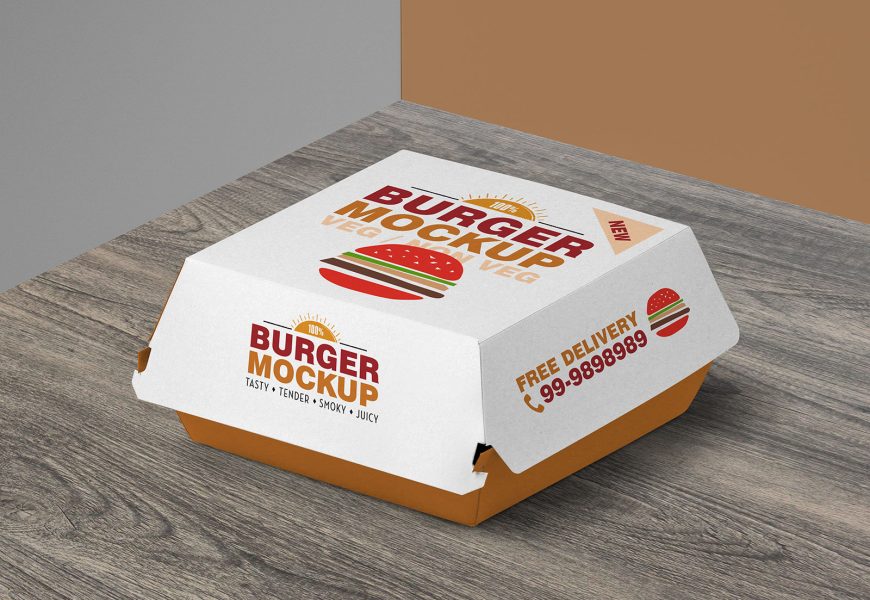n today’s environmentally conscious world, the importance of sustainable packaging has become a critical concern for businesses in the food industry. The Burger Boxes are at the forefront of this movement, providing an excellent opportunity for burger establishments to showcase their commitment to sustainability. This post explores the various materials used in burger packaging that promote sustainability while maintaining quality and functionality.
Understanding Sustainable Packaging
Sustainable packaging refers to the development and use of packaging solutions that have minimal impact on the environment. This includes materials that are renewable, recyclable, and biodegradable. The goal is to reduce waste and the carbon footprint associated with packaging.
Key Principles of Sustainable Packaging
Sustainable packaging must adhere to certain principles to be considered effective:
- Minimization of Waste: Utilizing materials that reduce the overall volume of packaging used.
- Material Source: Opting for renewable resources rather than fossil fuels or unsustainable practices.
- End-of-Life Considerations: Ensuring that the packaging can be reused, recycled, or composted at the end of its lifecycle.
The Burger Boxes A Sustainable Choice
Materials Used in The Burger Boxes
Various materials can be employed in the production of The Burger Boxes, each with unique properties that contribute to sustainability.
1. Recycled Paper and Cardboard
Recycled paper and cardboard are among the most widely used materials for burger packaging.
Benefits of Recycled Paper
- Resource Conservation: Utilizing recycled materials helps to reduce the demand for virgin resources, preserving forests and reducing energy consumption in production.
- Biodegradability: Paper products break down naturally in the environment, minimizing landfill waste.
- Printability: They can be easily printed on, allowing brands to incorporate their logos and marketing messages effectively.
Limitations of Recycled Paper
While recycled paper is environmentally friendly, it may not offer the same moisture barrier as plastic or other synthetic materials, necessitating coatings or treatments to prevent sogginess.
2. Plant-Based Plastics
Plant-based plastics, or bioplastics, are derived from renewable resources such as corn starch or sugarcane.
Advantages of Plant-Based Plastics
- Renewable Source: These materials are produced from renewable resources, reducing dependence on fossil fuels.
- Reduced Carbon Footprint: The production of bioplastics generally results in lower greenhouse gas emissions compared to traditional plastics.
- Compostability: Many plant-based plastics are compostable under industrial conditions, allowing them to break down naturally without contributing to landfill waste.
Challenges with Plant-Based Plastics
While plant-based plastics offer many benefits, they may require specific conditions to compost effectively and may not always be suitable for all types of food packaging.
3. Biodegradable Materials
Biodegradable materials are designed to break down more quickly than traditional plastics.
Characteristics of Biodegradable Materials
- Decomposition: These materials decompose naturally through the action of microorganisms, reducing their environmental impact.
- Versatility: They can be used in various forms, including films, containers, and wraps, making them suitable for a range of food products.
Considerations
The effectiveness of biodegradable materials depends on the environment in which they are disposed of. They typically require specific conditions to break down, which may not always be available in typical landfill settings.
The Impact of Sustainable Packaging on Brand Image
Building Consumer Trust
Using sustainable materials in The Burger Boxes can significantly enhance a brand’s reputation. Consumers are increasingly seeking products that align with their values, and sustainable packaging serves as a tangible representation of a brand’s commitment to the environment.
Marketing Opportunities
Brands can leverage their sustainable packaging as a unique selling point in their marketing campaigns. Highlighting the use of eco-friendly materials can attract environmentally conscious consumers and differentiate a business from competitors.
Encouraging Responsible Consumer Behavior
When businesses prioritize sustainability in their packaging, they can influence consumers to adopt more responsible behaviors. By providing clear instructions on how to recycle or compost packaging, brands can encourage customers to participate in sustainability efforts.
Challenges in Implementing Sustainable Packaging
Cost Considerations
Sustainable materials can sometimes be more expensive than traditional packaging options. This can pose a challenge for small businesses or startups with limited budgets. However, many companies find that the long-term benefits, such as increased customer loyalty and brand recognition, outweigh the initial costs.
Availability and Supply Chain Issues
The availability of sustainable materials can vary by region, impacting a business’s ability to source the required packaging. Companies may need to invest time and resources in establishing reliable supply chains to ensure consistency in their packaging solutions.
Consumer Awareness and Education
Not all consumers are aware of the benefits of sustainable packaging. Brands must take proactive steps to educate their customers about the importance of sustainable materials and how they can contribute to environmental efforts.
Innovations in Sustainable Packaging
Advancements in Material Science
The field of material science is continually evolving, leading to the development of new sustainable packaging solutions. Innovations such as edible packaging or packaging made from seaweed are emerging, providing exciting possibilities for the future of food packaging.
Integration of Technology
Technology plays a critical role in enhancing sustainable packaging. Smart packaging solutions can provide information about the product’s freshness or proper disposal methods, further educating consumers and promoting responsible behaviors.
Final Thoughts
The Burger Boxes made from sustainable materials represent a significant step forward in reducing the environmental impact of the food industry. By prioritizing eco-friendly options, brands can not only meet consumer demand but also contribute to a healthier planet. The shift towards sustainable packaging is not just a trend; it is a necessary evolution in the way businesses approach their operations and customer interactions.













